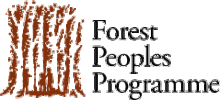Resource information
This report assesses the role of the World Bank in the funding and management of the Chad-Cameroon oil and pipeline project. The report argues that the project has fueled violence, impoverished people in the oil fields and along the pipeline route, exacerbated the pressures on indigenous peoples and created new environmental problems. The report highlights how the World Bank’s Implementation Completion Report (ICR) is inconsistent with other independent reports on the project. The ICR falsely claims that the compensation plan for Indigenous Peoples has been implemented in a timely manner and that that affected communities participate in economic development. Furthermore, one of the key promises of the project, enshrined in the Bank's loan and project agreements, was that all additional oil using the pipeline would be subject to the same environmental and social standards. The ICR now admits that enforcing this clause will be problematic. The report argues that the World Bank must address the outstanding environmental, livelihood and compensation problems. In particular, the Bank needs to address the concerns of Cameroon's indigenous Bakola/Bagyeli people, who have seen a worsening of their already precarious situation, and who face threats to their survival as a people. The report makes the following recommendations:
resolving problems of dust pollution, hazardous waste and general public health
ensuring adequate compensation and the restoration of livelihoods in the oil-producing region
scanning all regional compensation projects for defects, identifying solutions and resolving outstanding grievances
ensuring active participation by indigenous peoples in the Indigenous Peoples Plan and ensuring their right of ownership to the land they traditionally occupy



